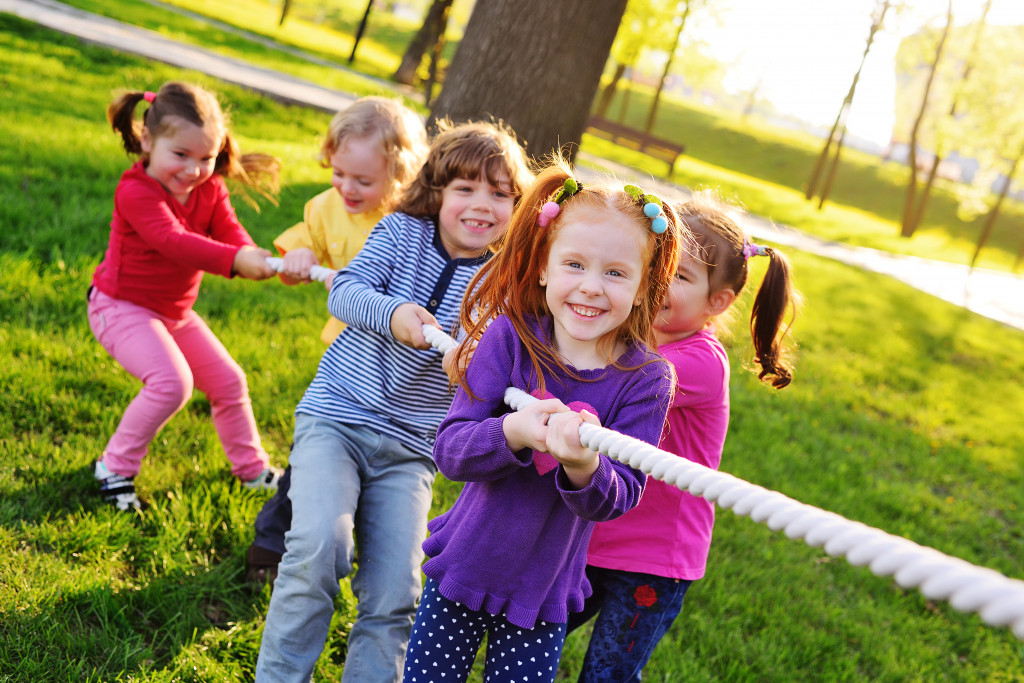- Playtime activities are essential for children’s development and growth, helping to boost coordination, confidence, creativity, problem-solving skills, and socialization.
- Examples of playtime activities include jumping, gardening, playing with water or sand, balloon games, painting, drawing, dress-up, and roleplay.
- These activities foster a safe environment to explore new concepts and develop physical strength and agility, allowing children to express themselves creatively.
- Through playtime activities, kids can learn valuable lessons about life and build their motor skills, language abilities, self-confidence, and problem-solving skills.
Playtime is essential for children’s development and growth. It helps boost their confidence, coordination, creativity, problem-solving skills, and socialization. Parents can help foster these important skills by engaging their children in playtime activities that are both fun and educational.
By providing a safe environment to explore new concepts while having fun, kids can learn valuable lessons about life and develop physical strength and agility. Here are some ideas for engaging playtime activities that can help boost your child’s confidence and coordination!
Physical Games and Activities
Physical games and activities are a great way to get kids moving and interacting with their environment. Here are some fun physical playtime activities that can help your child build coordination and confidence:
Jumping Activities
Fun jumping activities for toddlers are a fantastic way to boost their confidence and coordination. Whether leaping through hula hoops or jumping over hurdles, these activities require a lot of focus and determination. Kids can learn to control their movements by practicing jumping and gaining greater body awareness. This can be especially important for young children still developing their motor skills.
Additionally, jumping activities can be a great way to physically and mentally challenge kids. By setting goals and working to achieve them, children can develop a sense of accomplishment and pride in their abilities. Overall, jumping activities can be fun and engaging for kids to improve their coordination, confidence, and well-being.
Gardening Activities

Gardening is a great way to boost a child’s confidence and coordination. Children can develop a sense of accomplishment and responsibility through planting, nurturing, and harvesting plants. Caring for a living plant also helps develop important motor skills, such as hand-eye coordination and fine motor control.
Additionally, gardening activities can teach children about the importance of sustainability and the environment. By providing a hands-on experience, gardening can help to inspire a lifelong appreciation for nature and the world around us. Overall, gardening activities offer a valuable opportunity for children to develop important life skills while having fun and connecting with the natural world.
Playing with Water or Sand
Playing with water or sand is more than just a fun activity for kids; it is also an essential component of their development. This type of playtime idea can aid in boosting a child’s confidence and coordination skills, allowing them to experiment with different textures, weights, and movements.
Water play, for example, can help children develop fine motor skills, such as pouring, scooping, and gripping. Similarly, sand play can help kids improve hand-eye coordination and spatial awareness. Through these types of play, kids can learn to problem-solve, engage their imagination, and gain valuable skills that will benefit them throughout life. Encouraging parents to provide their children with opportunities for these types of engaging activities is important.
Balloon Games

Balloon games are an excellent activity to increase kids’ confidence and coordination. These games involve a balloon as the centerpiece, and children can learn to control the balloon with their body movements or by using simple tools like paddles. These games may seem simple, but they help children develop key motor skills, such as hand-eye coordination and balance, while boosting their self-confidence as they see themselves mastering new challenges.
Balloon games can also be played in groups, encouraging kids to interact and communicate with one another, an essential aspect of social development. Overall, incorporating balloon games into playtime can give kids a fun and engaging way to improve their physical and mental abilities.
Painting and Drawing
Engaging in painting and drawing activities can be an incredibly beneficial experience for children. Not only does it allow for a creative outlet, but it can also boost confidence and coordination. When children explore and express themselves through art, they can feel pride in their abilities and creations.
Additionally, practicing fine motor skills through the use of paintbrushes, crayons, and markers can lead to improved hand-eye coordination. Children’s confidence can grow as they learn to control their movements and create more complex artwork. All in all, painting and drawing act as a form of self-expression and promote valuable developmental skills for children.
Dress-Up and Roleplay
Dress-up and roleplay can be incredibly engaging for children, which not only ignites their imagination but also helps to boost their confidence and coordination. By assuming different roles and characters, children can learn how to communicate better, assert themselves in new ways, and develop crucial problem-solving skills.
Moreover, this kind of playtime can also enhance gross and fine motor skills as kids learn to move differently, manipulate objects, and refine their hand-eye coordination. Dress up and roleplay allow kids to explore different scenarios, build their language skills, and make sense of the world around them safely and enjoyably, all while honing critical social-emotional competencies that will serve them throughout their lives.
These are just some of the many playtime activities that can help children develop important life skills while having fun. Playing interactively and educationally can help children develop self-assurance, physical abilities, and imagination, which can benefit their future success.

